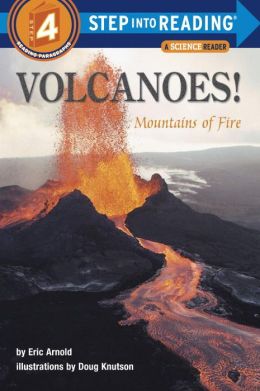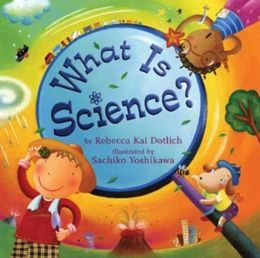Here is a list of 10 books that I believe will help enhance children's understanding of all the different sciences they will learn! (These are only 10 of the many out there)
1. Basher Science: Physics: Why Matter Matters! by Simon Basher
This book is a great way to introduce physics to young children. It ranges from the understanding of gravity to the theory of relativity. By using crazy looking characters, the pages engage children and help explain each concept.
As a class goes on a trip that is out of this world, they discover stars, planets and learn about the atmosphere. This book is great for children to understand space and the atmosphere make up. This book is an exciting for children.

3. Sea Turtles (National Geographic Readers Series) by Laura Marsh
Sea Turtles, is a great book to involve in an ocean or reptile lesson. This book uses beautiful photographs and illustrations to explain this mysterious creature. It talks about their swimming, laying their eggs and their daily life habits.

4. What Do You Do With a Tail Like This? By Steve Jenkins
I love this book! It is such a great book to use when learning about animals, reptiles and fish. It is a fun way to involve children in text. It is a guessing book and has beautiful illustrates that engage children and keep their attention.

5. Your Fantastic, Elastic Brain:Stretch It, Shape It! by JoAnn Deak
What a fun way to begin a study of the human body. And what better way than to start with the brain! This book takes children through understanding the anatomy and the different functions of the human brain. This book also explains to children that making mistakes is so important to learning!

6. Volcanoes!: Mountains of Fire by Eric Arnold
Volcanoes!: Mountains of Fire, can be used in so many ways. Not only does it explain the sciences and what causes the eruption of a volcanoes, but this book also explains famous eruptions throughout history. It shows Mount St. Helens eruptions in Washington State.

7. The Big Dipper by Franklyn M. Branley
The Big Dipper can be used to teach children the basics of astronomy. This book has illustrations of constellations. It explains to children in a fun way, which stars make up the Big Dipper. It has illustrations that are very easy to connect to the text which makes it very good book for comprehension.

8. What Is The World Made Of? by Kathleen Weidner
Kathleen Weidner's What Is The World Made Of?, explains to children all about that interesting topic...solids, liquids and gases. She shows the differences between all three and explains them in a kid friendly text. Using illustrations to allow children to make a better connection.

9. What is Science? by Rebecca Kai Dotlich
What is Science explains different aspects of science. It ranges from stars and soil and hurricanes. There are many great uses for this book. Perhaps, by introducing a section of this book at a time to children, while bringing in new lessons is a ideal. It highlights many of the basics for each area of study and will encourage children to ask questions.

10. It's Fall! by Linda Glaser
I really enjoy this book. Linda Glaser shows so many great examples of different changes we see around us as the seasons change. Many of the pages show animals, plants, and even humans changing according to the season. What a great book to use throughout the entire year!

No comments:
Post a Comment